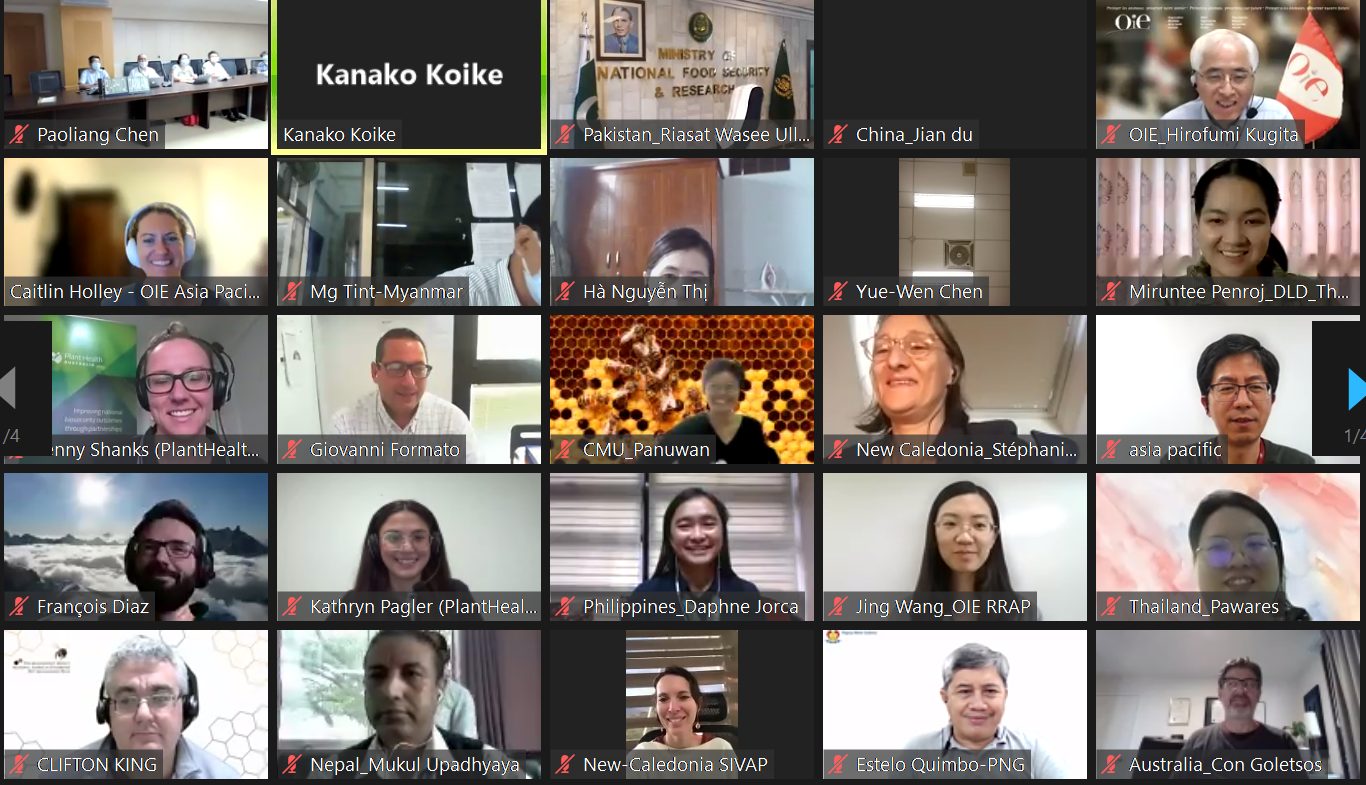Asia is the world’s largest beekeeping region accounting for about 47 percent of global beekeeping and 28 percent of honey exports. Bees, as the important pollinators and honey producers, play an important role in plant-based agriculture and ecology. With the industrialization of bee keeping, high-yield varieties of bees, such as the western honey bee, have been introduced in recent years. However, the frequent import and export of honeybees can lead to introduction and spread of disease within commercial and native bee colonies. Mass rearing of colonies and frequent long-distance colony transport also have an impact on colony health and can make colonies more susceptible to diseases.
So far, several WOAH-listed bee diseases, like American foulbrood & European foulbrood, have been reported in our region, but there is a scarcity of detailed official information reported to the WOAH World Animal Health Information System (WAHIS). This creates challenges for the control and prevention of honeybee diseases, and for the development of relevant industry at both national and regional levels. In addition, this lack of information increases the potential risk of the spread of honey bee diseases to unaffected countries.
To further understand the gaps and challenges faced by WOAH Members in the Asia Pacific region and to help strengthen the prevention and control of bee diseases, the WOAH Regional Representation for Asia and the Pacific (RRAP) organized the “Regional Workshop on Honey Bee Diseases in Asia and the Pacific” on August 24, 2021. More than 100 representatives from 22 WOAH Members, including National Focal Points, competent authorities, laboratories, research institutions and representatives of the beekeeping industry attended the meeting.
The workshop was organized with the objectives of introducing WOAH’s work in the field of honey bee diseases, share current knowledge of honey bee diseases by experts, share experiences and good practices of beekeeping in and outside the region, and identify disease control capacity gaps and needs of members in the region. Speakers from the WOAH Reference Centers (France, German & Italy), international organizations (Apimondia and COLOSS) and selected Members made technical presentations on various topics.
Relevant links and copies of the presentations given are available for viewing below.
